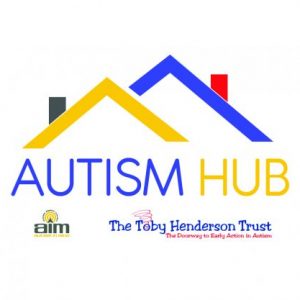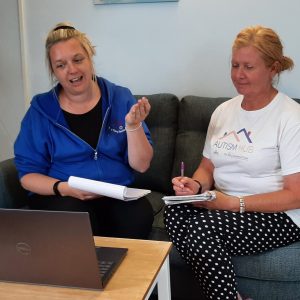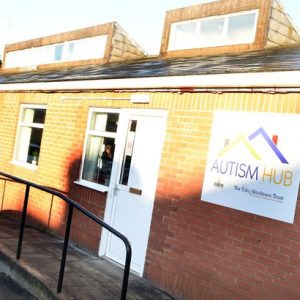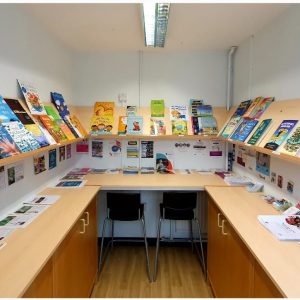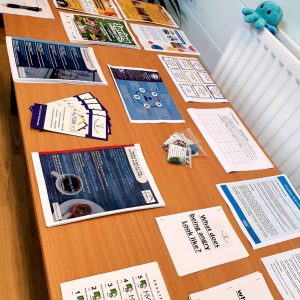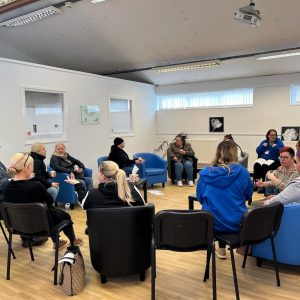Autism Hub
Supporting families at the AUTISM HUB in South Tyneside
Supporting families in South Tyneside in collaboration with Autism In Mind, the Autism Hub opened its doors in January 2020.
This unique, specialist lifespan service is being provided with the financial support of the South Tyneside Clinical Commissioning Group and the partnership with South Tyneside Council and it is free to all families in the area with a South Tyneside postcode.
Please note: to access TTHT services at the HUB, you do NOT need to have a confirmed diagnosis.
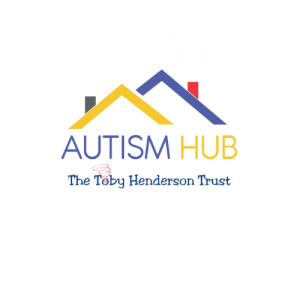
What we offer…..
Our current service provision provides support to parents and families of autistic children and young people up until the age of 18, without requiring a referral or even a confirmed autism diagnosis.
Currently our services include:
- Families of Autistic Girls support group via Zoom
- A Grandparents Guide to Autism support group via Zoom
- Targeted webinars. Please check out our Events and Training page – Webinars – The Toby Henderson Trust (ttht.co.uk)
- One to one family support Zoom sessions
- One to one family support telephone consultations
- One to one face to face family support sessions at the Hub
- Face-to-face monthly “Cuppa and Cake” sessions for parents & carers at the Autism HUB – Autism Hub Events – The Toby Henderson Trust (ttht.co.uk)
- Resource centre – containing copies of recommended books & other available local services/organisations.
- “Borrow Bags & Boxes” Scheme – FREE lending service for sensory & activity items – Borrow Bags & Boxes – The Toby Henderson Trust (ttht.co.uk)
- A range of autistic specific resources are available on our website and are being continuously updated.
The Hub is open between the hours of 9am and 4pm on Mondays, Tuesdays and Wednesdays.
To get in touch, ring us on 0191 816 0550. If we are unable to get to the phone, please leave a message and we will get back to you.
Alternatively, you can email us at autismhub@ttht.co.uk or message us through our Facebook page – Facebook
This is who we are
This is the Toby Henderson Trust Autism Hub Team.
Check out our ‘meet the team’ video, with footage showing us and our personalities. The ethos of the whole team first and foremost is to listen so families feel heard.
We are here to support but we are also here so families have that place to go to have a cuppa, a hug if needed, feel safe, relaxed and offload, in an environment with a team that ‘just get it!’ We hope it makes you smile, enjoy!!
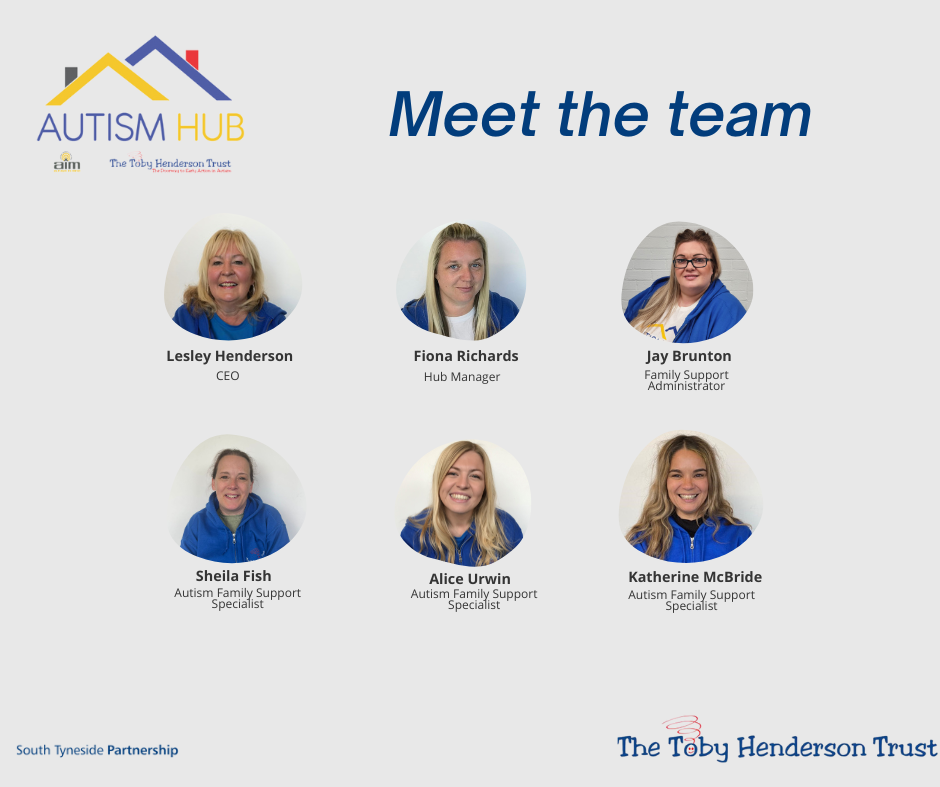
Feedback from Families
“I feel like a weight has been lifted. Asked for help for so long. I now feel like I am being listened to”.
* * * * * *
“Thank you for being there, the coffee, the hugs, for listening and for being a safe space for my chaotic and damaged self to slowly try and piece myself back together. You are my constant at a time when I am extremely alone and vulnerable. It is hard to articulate how much it means to me, so thank you will have to do”.
* * * * * *
“When my child was yet to receive an official diagnosis, I found myself in a state of confusion and worry. Like many parents in similar situations, I felt lost and unsure of where to turn for help. It was during this time that I found The Toby Henderson Trust, which became a beacon of hope and understanding for my family. The Trust’s commitment to providing advice and support, before, during and after diagnosis is truly commendable. The hub’s dedication to supporting yet-to-be-diagnosed children and their families is a testament to their genuine concern for the well-being of every child. The Autism Hub provided me with a wealth of information, insights, and resources that allowed me to better understand and accept my child’s unique behavioral tendencies. Through their guidance, I learned to embrace my child’s individuality and foster an environment that nurtures their strengths”.
* * * * * *
“I can’t tell you how much it’s been a great help to have someone listen and understand.”
* * * * * *
“Thank you so much! In 9 years, that’s the most help I’ve had, your support is very much appreciated!”
* * * * * *
“Today was so beneficial because I didn’t feel judged or like I was mad so thank you for that. I really appreciate the support because I often feel overwhelmed and a bad parent.”
